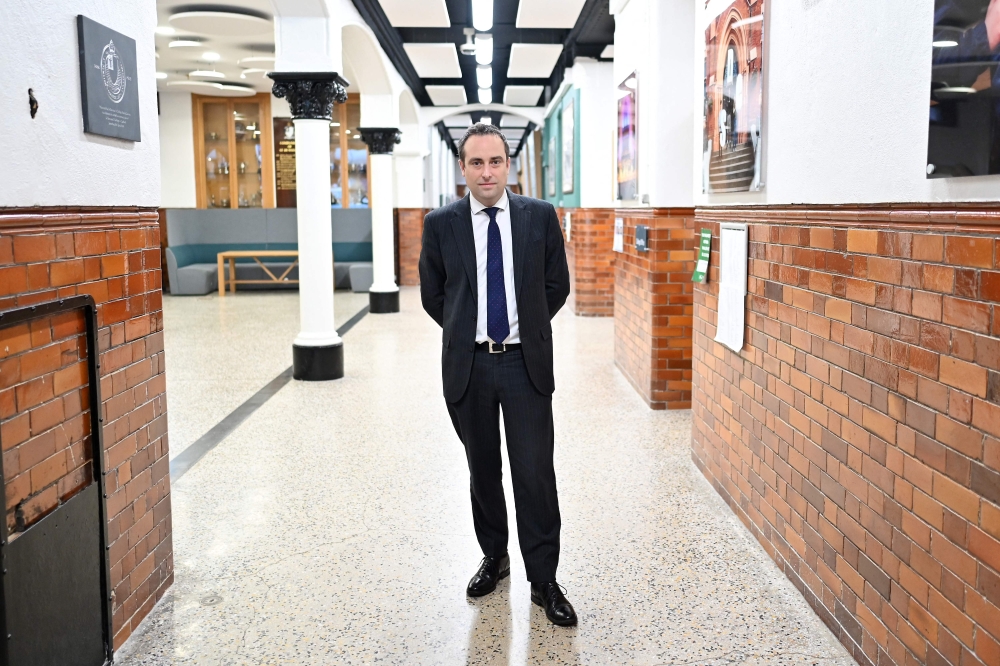LONDON, Feb 5 — When Nick Hewlett, head of a London school, was told about controversial online influencer Andrew Tate by a parent, he had never heard the name.
Yet he soon found out that his students were familiar with all of Tate’s misogynist posts on social media.
The head teacher of St Dunstan’s College decided to counter the problem, even before Tate’s arrest in December in Romania.
Hewlett’s solution, and that of some other schools, is to openly talk to students about Tate’s ideas.
Tate, a 36-year-old former kick boxer, is being investigated along with his brother on accusations of “forming an organised criminal group, human trafficking and rape”, charges which they deny.
When this news broke, many adults learned for the first time of this British man’s existence and that he was already an internet star for teenagers across English-speaking countries and beyond.
Tate’s name was one of the most-searched-for terms on Google in 2022.
He is known for his motivational videos, in which he lays out his vision of masculinity and success, waving a cigar and baring his chest.
For him, success is synonymous with wealth, domination and possessing women and luxury cars.
In one of his most disturbing messages, he talks about women being “the property” of men.
In a tweet, he wrote: “A man without struggle is never going to be a powerful man... If you’re going to be a hero, you’re going to suffer.”
He also said: “Masculine life is war”.
‘Talks about women like objects’
Just mentioning Tate’s name is enough to set off a heated debate among teenagers.
“At one point, I thought his message was good. He was encouraging men to go the gym,” says 17-year-old Kieran, outside his state school in north London.
“He talked about masculinity while a lot of men are lost. They are asked to behave in a certain way.”
Tate’s ban from some social media has not been enough to stop him reaching minors.
“After his arrest, I talked with my mother and my sister and I realised how serious it was,” says Kieran.
He says he has tried to block Tate from his social media but keeps seeing the content popping up anyway.
Kieran’s friend Jon, 18, says he likes some of Tate’s messages, but has noticed that he “talks about women like objects”.
“I’ve never liked him,” says Lilly, 17, the only girl in the group.
‘Toxic masculinity’
“Do we have a defined sense of what modern masculinity looks like? I’m not sure we do... I think that creates a huge vacuum in particular for young boys. And some exploit that”, said the head of St Dunstan’s College.
To deal with the problem, the private school in south London has added Tate’s story to a lesson topic already being taught.

From the age of 11, students learn about gender stereotypes and equality. At the age of around 13, they cover “toxic masculinity”.
“We have 1,200 children here. So, inevitably, some are going to be falling under his influence — or his spell,” says Hewlett.
“If schools don’t respond to that, who is going to challenge their views? (...) You’ll create a generation of young people who have a completely distorted view of what success looks like.”
The students learn about this topic through discussions between girls and boys, with the teacher playing the role of facilitator. Together, they deconstruct the discourse of Tate and other influencers.
Baffled parents
Natasha Eeles heads Bold Voices, a social enterprise she founded in 2018 that visits schools and universities to teach students about gender inequality.
She says she first heard of Tate in May 2022. Currently, 70 per cent of schools that contact her want her to talk about him.
“A lot of his rhetoric relies on stereotypes on masculinity. It’s very difficult to challenge that,” she says.
Last autumn, Bold Voices put together a toolkit to help parents start a conversation with children about Tate.
The advice includes asking open questions such as “What do you think of him?” and explaining what misogyny and homophobia mean.
“There’s a panic and fear among lots of parents, carers, teachers about Andrew Tate,” says Michael Conroy, founder of Men at Work, a social enterprise that helps teachers and social workers talk to young men.
“Teachers say young men are frequently bringing him into the classroom by quoting him, whatever the context,” he says.
For example in a business studies class, some will give him as an example, saying: “he’s the greatest businessman in the world”.
While Tate is being held in detention pending investigation, his videos are still going viral and he and his close allies are still tweeting.
Asked whether a jail term would reduce Tate’s influence, Conroy is sceptical.
“If he stays in jail, let’s not be naive. Others will fill the space.” — AFP






















